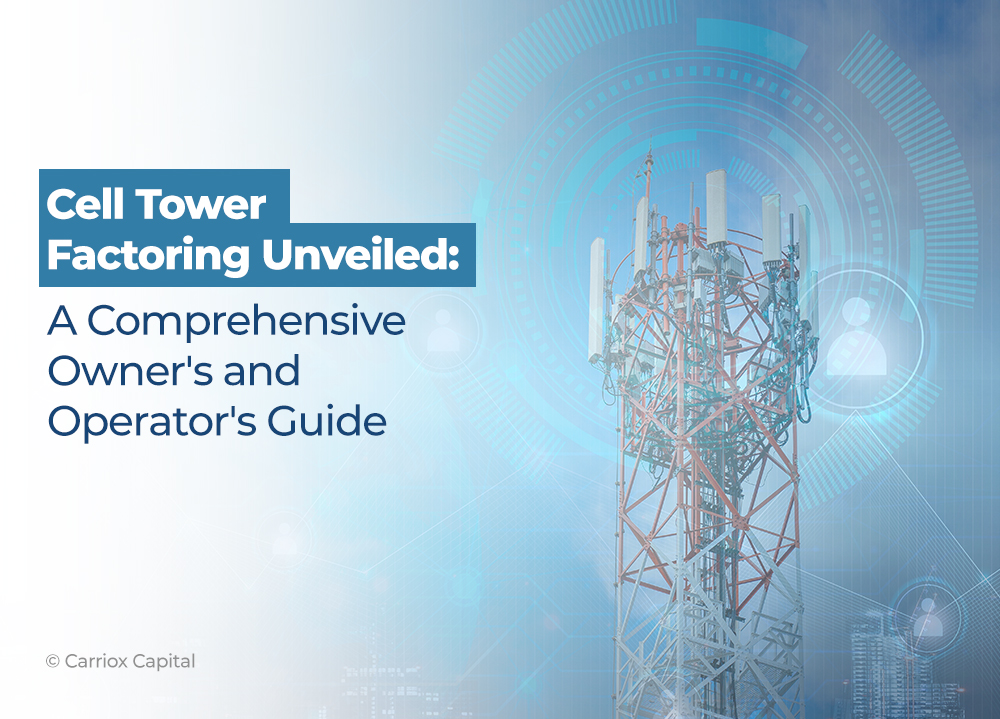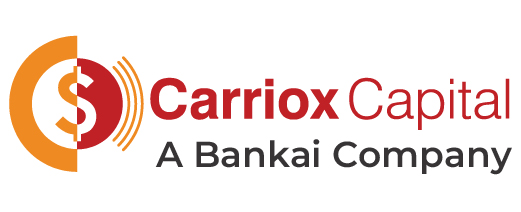The Ins and Outs of Cell Tower Factoring: A Comprehensive Guide for Owners and Operators

These kinds of cell towers infrastructure created is a newcomer in the market and the speed of its development is much higher than usual, with respect to the financial-cell tower matters, depending on who you are (operator or owner) different challenges exist. Though banks may not be able to deliver service, payment remains as a mandatory part of their banking duties. Hence, mobile tower lease factoring overcomes problems by not only being learnable and efficient but also robust and reliable financial tool of the industry. While the specifics of cell tower factoring illustration will most certainly help you get out the full picture of this subject and make you feel more confident about the necessity of studying this instrument, you will also be able to review the essay topic better and be persuaded of the value of factoring.
Likewise, we will use our platform of invoice factoring as the most dominant provider that is accessible to the cell tower industry and as well as to show the benefits of this instrument.
Understanding Cell Tower Factoring
Invoice factoring for cell towers is a financial transaction where a cell tower owner or operator sells their accounts receivable (unpaid invoices) to a third-party financing company, known as a factor. In return, the factor provides immediate cash, typically a percentage of the invoice value, allowing the owner or operator to access funds without waiting for payment from wireless carriers. Once the invoices are paid by the carriers, the factor releases the remaining balance, minus a fee.
Key Benefits of Cell Tower Factoring
Improved Cash Flow
Cell tower factoring accelerates cash flow by providing immediate access to funds, enabling owners and operators to cover operational expenses, invest in expansion, or address unforeseen financial needs promptly.
Mitigating Payment Delays
In the telecommunications industry, payment delays from wireless carriers are common. Cell tower factoring mitigates the impact of these delays by providing a reliable source of working capital.
Flexible Financing
Unlike traditional loans, cell tower factoring does not require collateral, making it accessible to businesses with limited assets or credit history. Additionally, the amount of funding available through factoring grows as the business grows, providing scalability.
Outsourced Accounts Receivable Management
By partnering with a reputable factor, cell tower owners and operators can streamline their accounts receivable management. Factors often handle invoicing, collections, and credit checks, reducing administrative burdens and allowing businesses to focus on core operations.
Opportunities for Growth
With improved cash flow and financial stability, cell tower owners and operators can pursue growth opportunities, such as acquiring additional tower sites, upgrading equipment, or investing in new technologies.
Navigating the Cell Tower Factoring Process
Choosing the Right Factor
Selecting a reputable and experienced factor is crucial for a successful cell tower factoring arrangement. Factors specialize in various industries, so it’s essential to choose one with expertise in telecommunications and a track record of reliability.
Submitting Invoices
Once a factor is chosen, the cell tower owner or operator submits their unpaid invoices for review. The factor assesses the creditworthiness of the wireless carriers and determines the advance rate, which typically ranges from 70% to 90% of the invoice value.
Receiving Funds
Upon approval, the factor advances the agreed-upon percentage of the invoice value, providing the owner or operator with immediate cash. This infusion of funds can be used to cover operational expenses, invest in growth initiatives, or address any pressing financial needs.
Invoice Collection
The factor assumes responsibility for collecting payment from the wireless carriers. Once the carriers remit payment, the factor deducts its fee and releases the remaining balance to the cell tower owner or operator.
Fee Structure
Cell tower factoring fees vary depending on factors such as the volume of invoices, the creditworthiness of the carriers, and the length of the factoring agreement. Typical fees include a discount rate applied to the invoice value and additional administrative fees.
Common Misconceptions About Cell Tower Factoring
Loss of Control
Some cell tower owners and operators fear that factoring will result in a loss of control over their accounts receivable. However, reputable factors work in partnership with their clients and prioritize transparency and collaboration.
High Costs
While factoring fees may seem higher than traditional financing options, it’s essential to consider the tangible benefits, such as improved cash flow and reduced administrative burdens. For many businesses in the telecommunications industry, the advantages of factoring far outweigh the costs.
Negative Impact on Relationships with Carriers
There’s a misconception that factoring may strain relationships with wireless carriers. Factors operate discreetly, and the arrangement typically has no impact on the business’s relationships with its clients.
Conclusion
Invoice factoring for cell towers is a valuable financial tool that empowers owners and operators to overcome cash flow challenges and seize growth opportunities. By understanding the process, benefits, and considerations associated with cell tower factoring, businesses can make informed decisions that enhance their financial health and competitiveness in the telecommunications industry. As technology continues to evolve and demand for connectivity grows, cell tower factoring will remain a vital resource for sustaining and expanding telecommunication infrastructure.

Arpit Sharma
Arpit Sharma is a Senior Content Writer at Panamax, Inc. with expertise in tech content writing, social media platform management, and more. With a vibrant educational background that includes the amalgamation of electronics and communication engineering and Mass Communication & Journalism, he uses his expertise to curate good content. In his free time, he spends time running marathons, cyclothons, and spending time with his family.

